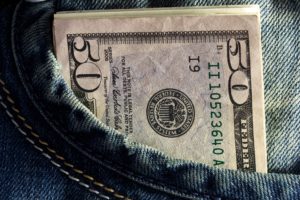
If you’re relying on your bank statement to know if your company is profitable you will be sorely disappointed.
Profitability has a strange relationship with cash. Just because there is positive cash flow does not mean there is a profit. And vice versa. Entire industries operate with disparities between profitability and cash flow.
The challenge is making sure you don’t owe the government money when you don’t have any cash.
Cash is the lifeblood of the business yet governments care most about profitability. Tax payments are determined not by cash flow, but by the amount of profit the business generates.
While it is tempting to think cash in the bank means you were profitable, that logic doesn’t hold up.
How did you make money if your business bank account is low?
Here are nine examples where cash and profitability don’t align.
Pay down long-term debt
Many people forget that the principal payment of their long-term debt is not deductible. While the payment is a requirement, there is no opportunity to deduct the cash payment for the principal.
Pay down the operating line
Fluctuations in your operating line balance are one of the greatest planning challenges for taxes. Guessing what the balance will be at a given date may be difficult. If you’ve made a profit this year and used it to pay down your operating line, that’s a reduction of cash with no reduction of profit.
Purchases of inventory
Growing a product-based business requires an investment in raw materials to produce. This is a payment of cash for a product that will be turned into inventory. The challenge here is that inventory, like cash, is an asset on your balance sheet. That means if you write a check for inventory, that value simply travels from cash to inventory on the balance sheet. And if you’ve guessed that it doesn’t reduce your profit, you’re right.
Distributions and personal expenses
Owners sometimes take more liberty than is warranted with their companies. Business and personal entertainment, meals, private aircraft, and other personal “fringe” benefits sometimes show up in the books. While some of these are partially deductible, most of them are not, meaning the profitability does not decrease with the cash flow.
Decreases in accounts payable
The accounts payable (AP) are all the bills (not loans) you’ve received from your vendors. Depending on your tax filing, decreasing accounts payable by paying out cash may not impact your taxes.
There are other transactions which may impact your taxes but don’t involve cash.
To make tax planning even more challenging, there are other fluctuations in your business which impact your profitability and have no impact on cash.
Depreciation
An ace up the sleeve for a savvy accountant, depreciation is a non-cash expense which reduces taxes without impacting cash. It rarely matches cash flow exactly and can be moved from one tax year to the next depending on the profitability, not cash. (A quick reminder of what depreciation is can be found here.)
Amortization
A close cousin to depreciation, amortization is a gradual reduction of an intangible asset. Accounting jargon fills this space and it gets confusing, just know there can be “assets” that show up on the books of a business for one reason or another. They are gradually expensed through a process of amortization. This results in lowering the taxes without impacting cash.
Increases in accounts receivable
Depending on your tax status, sending an invoice to a client can increase your taxes regardless of whether or not the client pays it in the current year. Simply sending the invoice can result in higher taxes for you, so plan this out in advance.
Increases in accounts payable
Similar to increases in accounts receivable, receiving a bill from a vendor, thereby increasing accounts payable (AP), may reduce your taxes without impacting cash.
These are nine reasons why you can’t rely on the bank balance to determine your profitability.
Managing a business involves managing taxes. Knowing what impacts your taxes is the first step to managing taxes.
Don’t be surprised at tax time. You can know approximately what your tax bill will be, and have time to change it, in the current year. This service is called tax planning and your CPA should be helping you with this.
The money spent on tax planning may be the best investment you make all year.
While everyone loves to have cash in the bank account, it’s presence doesn’t mean there is a profit. Other accounts will impact your taxes. Know which accounts impact your taxes and make sure you track them to avoid any surprises with your tax bill.
Ever had a surprise tax bill?
